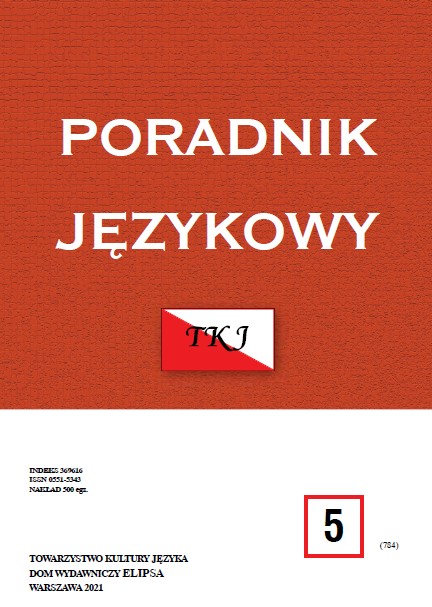Retoryka ekspresywnej egzemplifikacji w językach typologicznie odległych – na przykładzie wybranych wypowiedzi polskich oraz japońskich
Rhetoric of expressive exemplification in typologically distant languages: On the example of selected Polish and Japanese statements/utterances
Author(s): Jarosław A. PietrowContributor(s): Monika Czarnecka (Translator)
Subject(s): Theoretical Linguistics, Syntax, Semantics, Comparative Linguistics, Western Slavic Languages, Rhetoric
Published by: Dom Wydawniczy ELIPSA
Keywords: exemplification; negation; syntactic typology; Japanese language; Polish language;
Summary/Abstract: A confrontative analysis of distant natural languages proves fully useful in terms of cognition when, as a result, formal differences in statement/utterance structures arising from typological dissimilarities, yet disclosing universal communication strategies, can be noticed. This refers also to the colloquial rhetoric, which is illustrated by this attempt at comparing the strategy of expressive exemplification combined with the mechanism of negation in Polish and Japanese. Usages of the Polish negative pronoun żaden (no, none) are compared here based on an extensive corpus of colloquial sentences to the corresponding Japanese exemplification structure based on the use of the form nanka, which, in turn, permits the observation of characteristic shifts in the hierarchy of the exponents of the former and the latter semantic function mentioned here. The synthetic nature of the Polish structure places the negation higher in the hierarchy, thus prevailing over the meaning of the exemplification, while in the Japanese language the analytical separation of both meanings places the exemplification and the negation at an equal level as part of the separately shaped thematic-rhematic segmentation of statements/utterances.
Journal: Poradnik Językowy
- Issue Year: 2021
- Issue No: 05
- Page Range: 37-50
- Page Count: 14
- Language: Polish
- Content File-PDF

